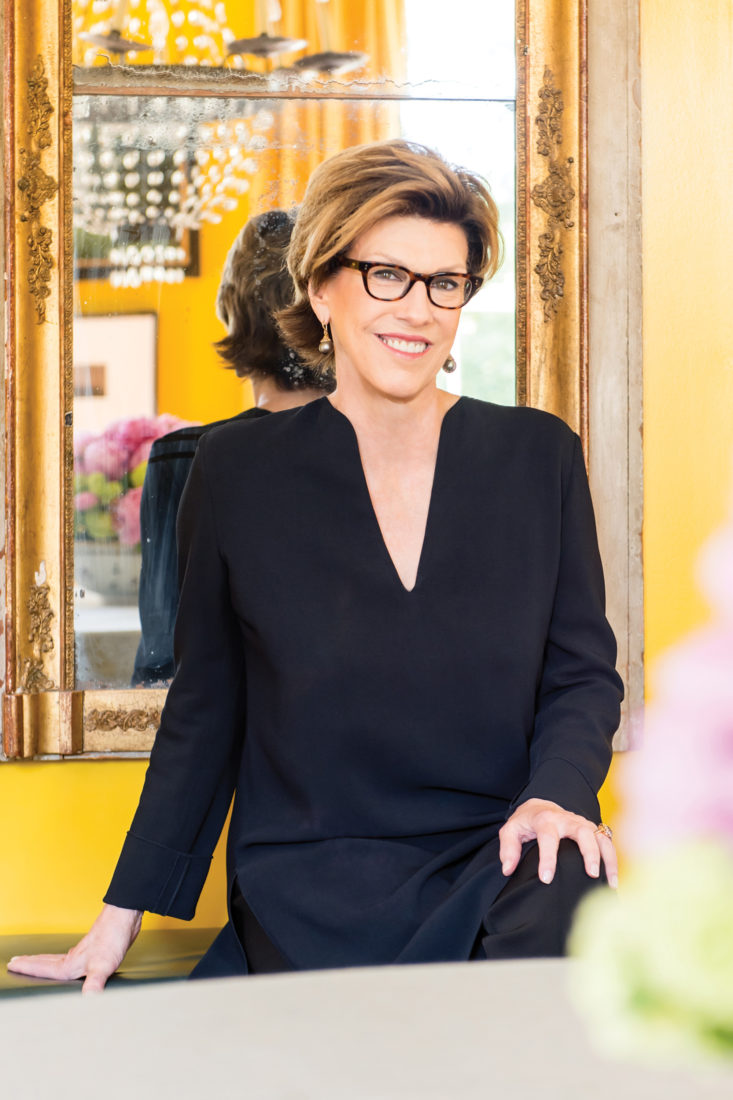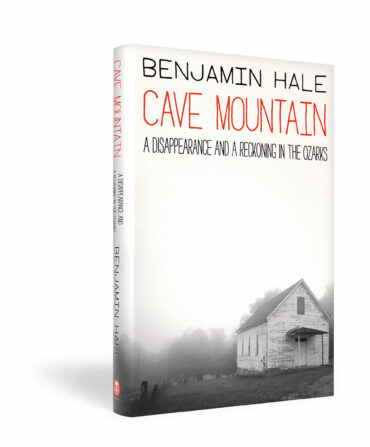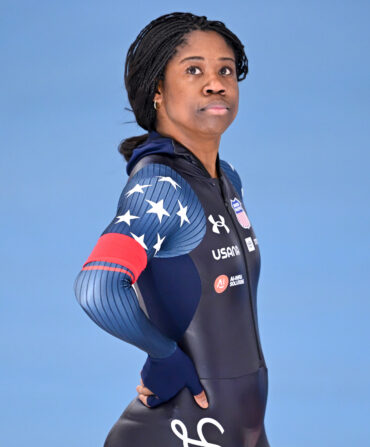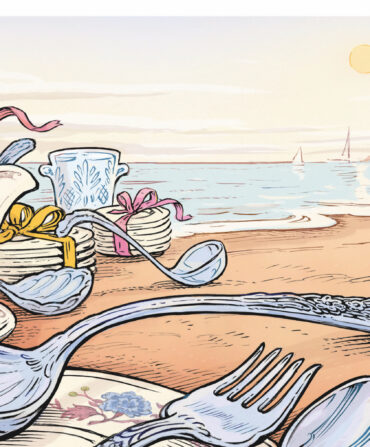It all began, inevitably, with a bang—with the sound of a series of .32-caliber shots fired in a secluded, wooded estate in Purchase, New York. The house belonged to Dr. Herman Tarnower, the celebrated “Scarsdale Diet” doctor who made the ultimately fatal decision to spurn a lover, Jean Harris, the pill-addicted headmistress of the elite Madeira School for girls outside Washington, D.C. Late on the evening of Monday, March 10, 1980, Harris discovered another woman’s lingerie in the doctor’s bedroom. In the ensuing clash, Harris shot Tarnower—accidentally, she would claim—four times in the chest.
The next morning, Mel Elfin, the Washington bureau chief of Newsweek magazine, heard the news and went into action. Groggily, Julia Reed—then a sophomore at Georgetown University and a part-time bureau library assistant and receptionist—picked up the phone in her dorm room to find Elfin on the line. She’d gotten the post at Newsweek while she was a student at Madeira and knew Harris. “Get out to Madeira now,” Elfin barked. “Start filing. We need a story.”
“Why on earth?” Julia asked. (In her re-telling of the story, there was no profanity, but experience suggests there likely was.)
“Because, you idiot, your headmistress just shot the diet doctor.”
Let’s let Julia pick up the narrative: “Looking back, I realize I had none of the usual reactions. Instead, I threw on clothes, jumped in the car, made my way past the guards (with whom I’d made sure to be on extraordinarily good terms during my slightly shady school tenure), and got the scoop on all that had transpired before Harris drove off campus armed with a gun. I typed up my notes, filed my story to New York, and got my first-ever byline. I was nineteen and only the tiniest bit sorry that the good doctor had given his life in service to my future as a journalist.”
And what a future it was. Whether the topic was what we eat, how we live, or why we believe, Julia achieved what her fellow Mississippian William Faulkner set out to do when he said that he wanted to take a “postage stamp of native soil” of his fictional Yoknapatawpha County as a particular stage on which to dramatize great human themes.
Reed’s postage stamp, though, was even larger than Faulkner’s. To switch metaphors, her canvas was the whole of the South and of the country, stretching from the dives of New Orleans up through her beloved Delta and winding into the northern reaches of Virginia, at Madeira, and extending farther beyond, to the canyons of Manhattan and the enclaves of Long Island. Who else but Julia could be a trusted guide to such a sprawling mass of America, never putting a Manolo Blahnik–shod foot wrong? I can’t think of a single soul.
Born in Greenville, Mississippi, on September 11, 1960, Julia Evans Reed was the daughter of Judy and Clarke Reed. Her mother was a native of Nashville, the child of a prominent Belle Meade family; her father, a businessman and leader of the Mississippi Republican Party who played a role in the years of Richard Nixon, Gerald Ford, Ronald Reagan, George H.W. Bush, and George W. Bush.
As the novelist Jay McInerney recalled, “Julia Reed was Mississippi’s answer to Dorothy Parker, gifted with a biting wit, a fierce intellect, and a generous spirit of hospitality. She was an intellectual and a hedonist, a brilliant raconteur with a colorfully profane vocabulary who could whip up a delicious dinner for twenty of her friends and then drink them all under the table before waking up a few hours later to deliver a sparkling performance on MSNBC. She was unforgettable and irreplaceable.”
Educated in Greenville, and at Madeira, Georgetown, and American University, Julia lived and worked in Washington, D.C., New York City, New Orleans, and Greenville. A longtime editor and writer for Vogue magazine, she also contributed to the New York Times, Newsweek, Conde Nast Traveler, the Wall Street Journal, U.S. News & World Report, and Elle Décor. And until the time of her death, she was a cornerstone of Garden & Gun, where loyal readers and fans would turn immediately to her column for dispatches from her world.
As an author, columnist, and speaker, Reed was a figure in the tradition of M.F.K. Fisher and of Edith Wharton. She was a writer of great range whose subjects included corrupt but charming Southern politicians, first families, food, art, architecture, gardening, decorating, and the triumphs and the tragedies of the American South.
Her grounding in political reporting was always evident. Ann McDaniel, a colleague of Julia’s at Newsweek, recalled, “Mid-afternoon, many days in the mid-1980s, Julia would burst through the glass doors of the Washington bureau of Newsweek and grab the PA system from the receptionist. ‘Attention K-Mart Shoppers,’ she’d blast, ‘today’s blue light special is …’ and off she’d go with the riff on the day’s news, the latest jokes, or a color commentary on her colleagues. She was an intern, of sorts, five years younger than the next youngest person in the bureau, and yet she sounded more confident, was a better storyteller, and the most engaging voice in the office. Her clever, often sarcastic observations revealed an important truth more often than not.”
There it all was: the larger-than-life personality, the journalistic skill, the perennial sense of theatricality. “She had a voice beyond her years, too, an unforgettable, smoky, cello-rich tone that was a mix of dark honey, bourbon, and Marlboros,” recalled Howard Fineman, the longtime chief political correspondent of Newsweek. “I could listen to it all day and did. She had a sense of humor that was both sharp and sweet, stinging and forgiving at the same time. She could drink a Hurricane, and was one. She was not only the life of any party, she was the party whether she was host or not. From her dad she inherited a wide view of life and politics. She was the best kind of Southerner, the kind that turns the bittersweet experience of growing up there, of having deep roots there, into an education for us all in tolerance, humor, and understanding.”
Her books included Julia Reed’s New Orleans: Food, Fun, and Field Trips for Letting the Good Times Roll (2019); South Toward Home: Adventures and Misadventures in My Native Land (2018); Julia Reed’s South: Spirited Entertaining and High-Style Fun All Year Long (2016); The House on First Street: My New Orleans Story (2008); Ham Biscuits, Hostess Gowns, and Other Southern Specialties: An Entertaining Life (2009); and The Queen of the Turtle Derby and Other Southern Phenomena (2005).
If we’d tried to invent a character like Julia, nobody would have believed it. She was a tsunami of talent, charm, and energy. She could write about anything and make it sing. Her distinctive voice was at once affectionate and arch—a tough combination to pull off.
She grew up in the Age of Nixon. An early memory was hanging out with—of all people—Spiro T. Agnew (before he had to plea nolo contendere to accepting brown bags of cash as vice president of the United States). Her father spent a lot of time on the road. When asked where he was off to, Mr. Reed would say, “Going to save the Free World, baby.” He’d often return with guests in tow—pols and moneymen, reporters and statesmen. Mrs. Reed often found herself called on to produce meals for William F. Buckley, Jr., for instance, or George H.W. and Barbara Bush, or Robert Novak. Novak, the self-described “Dark Prince” of conservative commentary, would suffer a heat stroke after a farm tour in Tribbett, Mississippi, during Julia’s fortieth birthday celebration; Karl Rove, George W. Bush’s political consigliere, would be among those helping Novak from the Reeds’ backyard into the house, where Julia suggested milk punch might help. Novak, though grateful, wisely declined that treatment.
She was at her literary best among the flawed and the funny. “A craps player noted for his love of beautiful women and his use of gambling aliases such as ‘T. Wong,’” Julia wrote of Louisiana Governor Edwin Edwards, “once declared that to get in trouble with Louisiana voters he would have to be found ‘in bed with a dead girl or a live boy.’” Profiling George Jones, she wrote: “I’ve had the privilege of meeting many a country music great, including Jones, largely through my friend Susan Nadler, to whom Jones referred to with affection as ‘my little Jew’ and who was also part owner of his record company. Susan has worked with everyone from Willie Nelson and Kris Kristofferson to Tammy Wynette (Jones’s third wife and singing partner) and is herself no stranger to crime. She once did time in a Mexican jail, an experience immortalized in a memoir called The Butterfly Convention, and she wrote another fine book, Good Girls Gone Bad, in which Jean Harris could easily have been a chapter. Anyway, just before Jones died, he sent Susan a letter promising her a spot next to Johnny Paycheck in his private group of cemetery plots.” Writing about George W. Bush’s marriage to Laura Bush, Julia reported: “One night, as they pulled into their driveway, he asked her how his speech had been. ‘It wasn’t very good,’ she replied. He drove into the garage wall.”
She lived large. On any given day or season you might find Julia driving around Mississippi with Jessica Lange. Or dining at Doe’s Eat Place in Greenville with Anthony Bourdain. Or she’d be in Paris, reporting on caviar for the Wall Street Journal. Or in London, picking up a new “sleep coat” for her father. Or filing an essay for Vogue on a planned wedding that went awry some decades ago; a favorite detail was that her mother had so much champagne on hand that she was still giving the postman bottles of it three years later. Describing a New Year’s Eve party at the Georgetown house of Washington Post legend Ben Bradlee and his wife, the writer Sally Quinn, Julia recalled: “I walked in behind Alma and Colin Powell. So far, so good. Plenty of booze, and plenty of people drinking it. A delicious late supper of choucroute and mashed potatoes soaked it all up, and by midnight everybody was dancing. Lauren Bacall danced. Tom and Meredith Brokaw danced. We all danced, with the exception of Al Gore, who, at the stroke of midnight, was standing almost alone in the living room talking about the environment.”
Julia loved her native Mississippi Delta, and recently built a small house near her parents that she called “the Folly.” She re-envisioned the annual Mississippi Delta Hot Tamale festival in Greenville, bringing writers, chefs, entrepreneurs, and artists to town for food and conversation in order to support affordable housing, downtown development, the local library, and the arts. The festival concluded every year with a Mississippi River Sunday Sandbar Picnic that could last, it seemed, for almost as long as the festival itself. In recent months, Reed opened a bookstore, Brown Water Books, in the historic Wetherbee House in Greenville, and was cofounder of Reed-Smythe Co., an online mercantile business designed to support independent artisans.
In 2019, Julia was recognized for championing her home state when the governor of Mississippi and the state’s Arts Commission named her a Cultural Ambassador. In its announcement of the award, the commission said: “Though she has traveled the world in her various roles, Reed has long served as a cultural ambassador for the state, sharing Southern traditions, culture and recipes through her popular columns and books….Reed is also an instrumental organizer of the Delta Hot Tamale Festival, who has helped attract national attention to the small town festival through her writing and literary connections.”
John Huey, a former editor-in-chief of Time Inc. and a regular at the raucous tamale festivals, recalled, “Julia Reed filled a most unusual space in American letters. She was absolutely up-to-the-minute on all matters of taste and style, while presenting as a magnificent throwback to another time. She wrote with a lyricism that echoed her beloved Mississippi literary heroes and heroines, but not without irony. She was hilarious and charming both in print and in person. And she could recite the complete lyrics to many of her favorite tunes, including ‘Ode to Billy Joe’ and ‘I’ve Been to Georgia on a Fast Train, Honey.’ We all loved her, respected her, and were in awe of her talent, her inventiveness, her energy, and—toward the end—her good-humored courage. Julia was both a creator and a character in the tapestry of Southern writing. We will miss both so much.”
Whether her subject was Scotch whiskey, the opossum, or the mad politics, mournful music, and out-of-the-way cafes and bars of the South, Julia unerringly found the universal in the particular. In a way, she was a foreign correspondent in her own land, filing dispatches about the sacred and the profane—and revealing, often subtly, the porous border between the two. The mark of a great journalist is the capacity to see what should be evident to everyone but which somehow isn’t—not until a keener eye and a sharper sensibility casts fresh light on what lies before us in plain sight, suddenly giving readers the fabled flash of recognition.
That was Julia’s gift—the gift, as Shelby Foote once put it in a letter to Walker Percy describing the writer’s craft, to teach others how to see. Because of her our vision is clearer, our senses heightened, our lives charmed and enchanted. What more, in the end—or even in the beginning, or in the middle—could we ask of a writer than that?
Nothing. Nothing more. She and I and my wife became friends in New York a quarter of a century ago; Julia was godmother to our eldest daughter. I considered having the Presbyterian Julia fill the office for an Episcopalian child an act of ecumenical grace; when I told her this, Julia replied with a profane injunction I won’t repeat here. But you can hear it, can’t you?
I have always been struck by how many people come up to me to bear unsought witness to Julia’s power—the readers of her work who, on learning that I am fortunate enough to be her friend, want to tell me how important, how wonderful, how indispensable they find her voice. In her work and in friends we will always be able to hear her again—learning anew from her alternately funny and wise, charming and knowing, transporting and illuminating vision of life. Her voice lingers even now, resonating still.
For a collection of Julia Reed’s most popular Garden & Gun stories and podcasts, click here.








